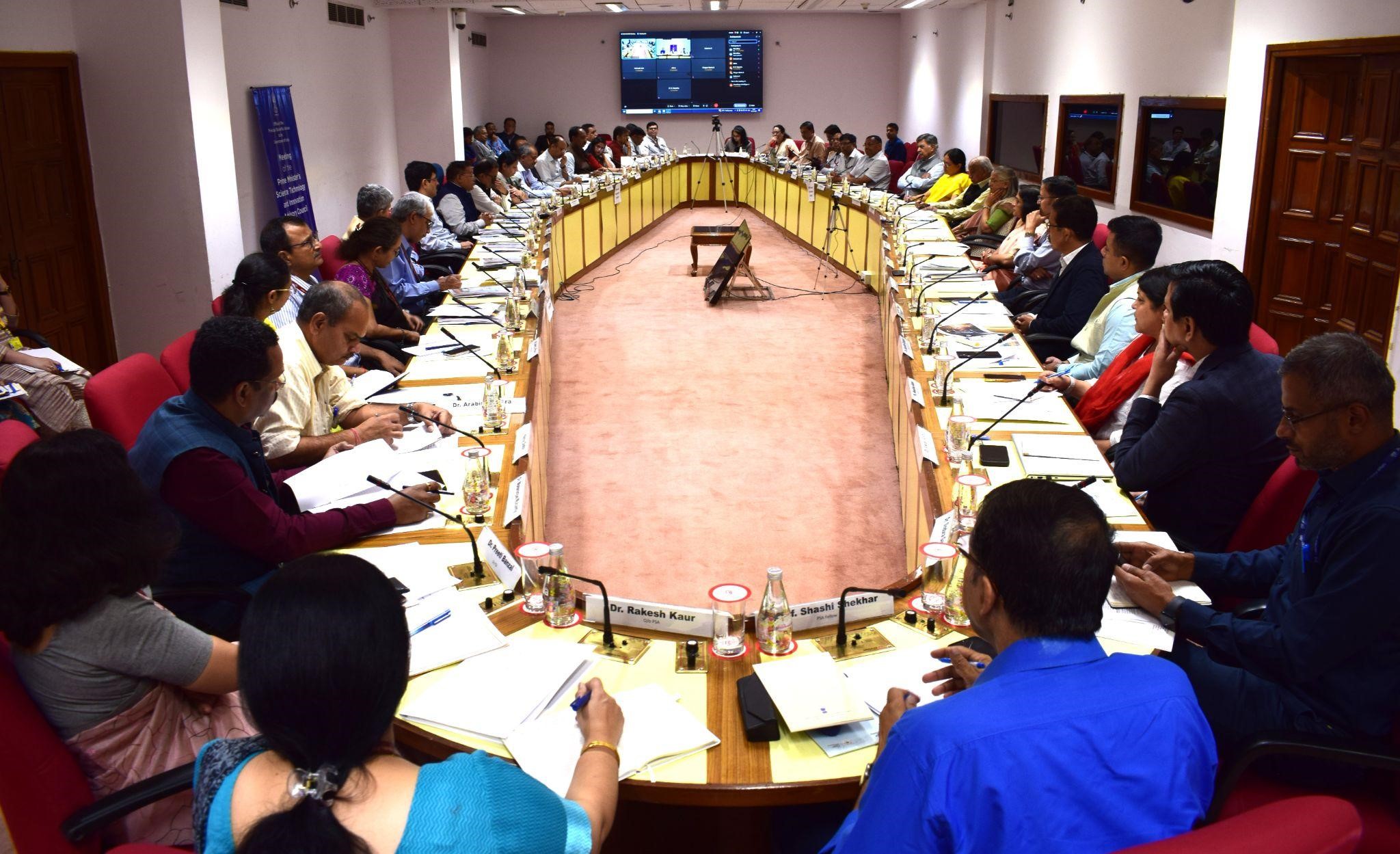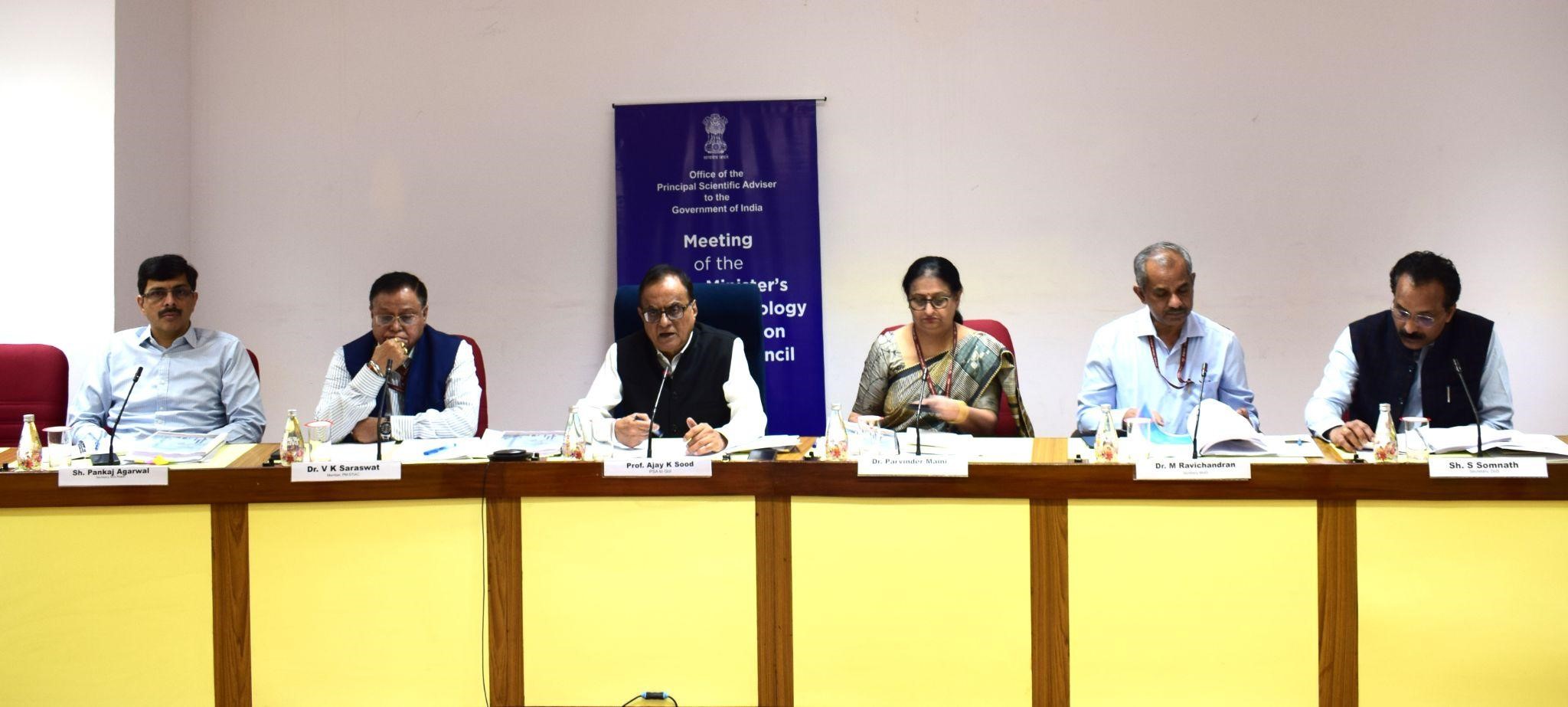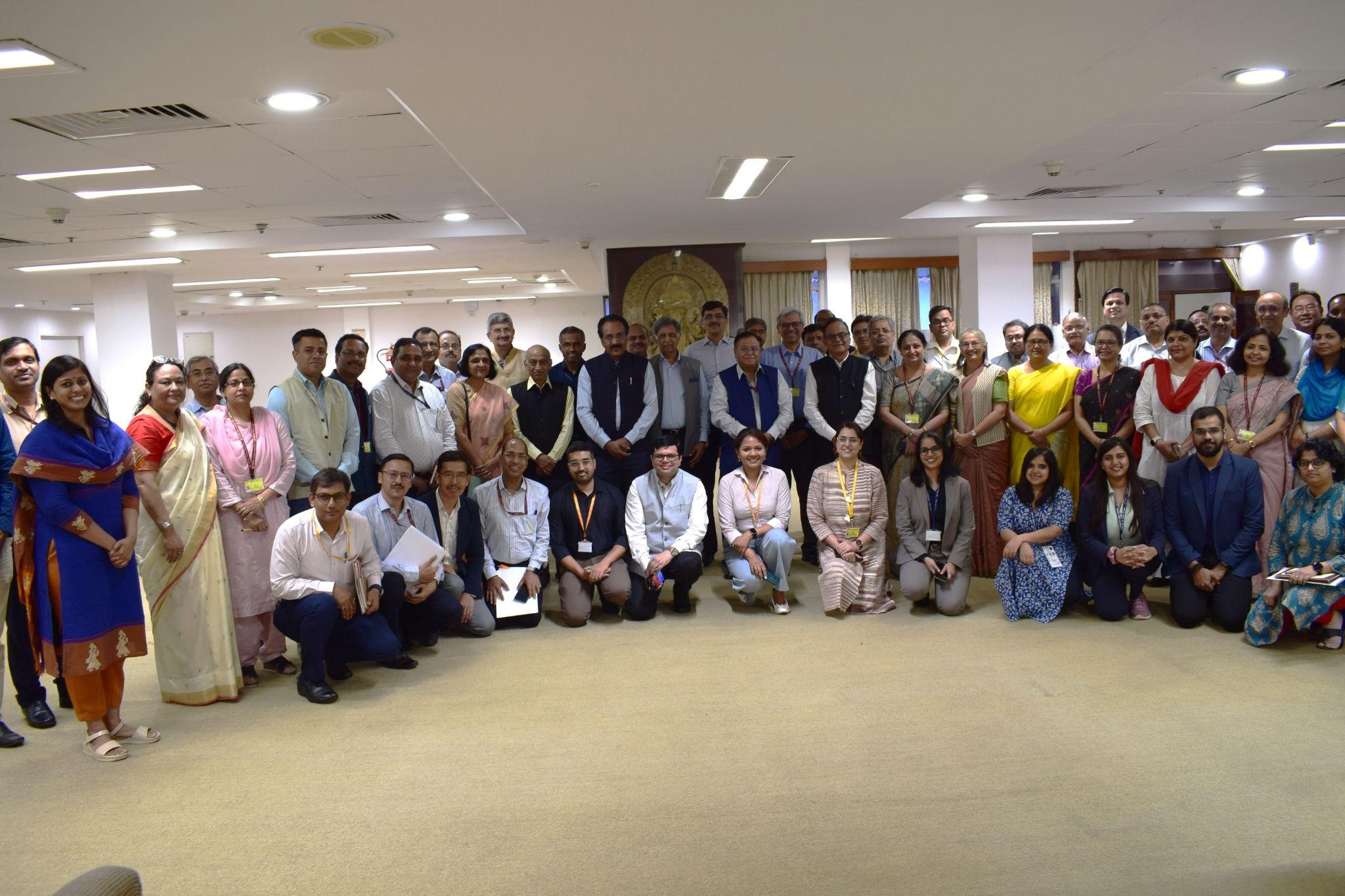25th Prime Minister’s Science, Technology & Innovation Advisory Council (PM-STIAC) Meeting Discusses Carbon Capture Utilisation & Storage (CCUS) and Carbon Credit in India
25th Prime Minister’s Science, Technology & Innovation Advisory Council (PM-STIAC) Meeting Discusses Carbon Capture Utilisation & Storage (CCUS) and Carbon Credit in India
The 25th Prime Minister’s Science, Technology & Innovation Advisory Council (PM-STIAC) meeting was chaired by Professor Ajay Kumar Sood today (July 9, 2024) at Vigyan Bhawan Annexe in New Delhi.

(25th PM-STIAC Meeting Underway)
Along with the PM-STIAC members, the meeting brought together key government officials and industry players to discuss robust policy formulation for effective Carbon Capture, Utilization, and Storage (CCUS) in India. They discussed the reports prepared by inter-ministerial technical committees constituted by NITI Aayog’s Advisory Committee on developing a policy framework for implementing CCUS initiatives in India. The meeting also discussed India’s carbon market and carbon credit scheme to reduce emissions, pursue a low-carbon path, and provide market support for mitigation methods and technologies.
India has set a target to achieve a 45% reduction in emission intensity by 2030 and is aiming for Net Zero by 2070. This makes CCUS one of the important measures to achieve decarbonization from the hard-to-abate sectors.
The meeting was joined by Dr. V.K. Saraswat, Member S&T, NITI Aayog, Scientific Secretary Dr. Parvinder Maini, Office of the Principal Scientific Adviser to the Government of India and the Secretaries of all relevant departments including Secretary (Power) Shri Pankaj Agarwal; Secretary (Department of Chemicals and Petrochemicals) Ms. Nivedita Shukla Verma; Secretary (Earth Sciences) Dr. M Ravichandran; Secretary (Coal) Shri Amrit Lal Meena; Chairman (Indian Space Research Organisation) Dr. S. Somanath; Chairman (Defence Research and Development Organisation) Dr. Samir V Kamat; Secretary (Biotechnology) Dr. Rajesh Gokhale; and Secretary (Department of Health Research) Dr. Rajiv Bahl.
Representatives from the Ministry of Environment, Forests & Climate Change, the Department of Scientific and Industrial Research, the Ministry of Steel, and the National Council of Cement and Building Materials also participated in the meeting.
In his opening address, Prof. Sood highlighted the government’s prioritisation of CCUS as a solution for CO2 emission reduction. He discussed the opportunities for widespread adoption and large-scale deployment of CCUS technologies, focusing on economic feasibility, supportive policy measures, institutional arrangements, and technological feasibility for installing CCUS projects in industries like Power, Iron & Steel, Cement, and Chemicals. He also emphasized the role of carbon markets in promoting CCUS by exploring options such as pricing on carbon emissions and driving investments in emission reduction technologies among others.

(PSA Prof. Sood delivering opening remarks)
Dr. V.K. Saraswat, Member S&T, NITI Aayog noted that technical committees were established by NITI Aayog for adopting CCUS technologies. He highlighted the need for prioritizing R&D, regulatory framework and the way forward to large-scale capacity plants. He asserted the significance of the carbon credit market, suggesting measures such as incentivization to industry to foster its development. Additionally, Dr. Saraswat recommended that hub and cluster approach may be adopted for development of the CCUS ecosystem in the country.
The first session of the meeting commenced with the presentation by Mr. Rajnath Ram, Advisor/Head, Energy, NITI Aayog outlining the findings of the inter-ministerial technical committees’ reports on four identified areas of CO2 capture; CO2 utilisation; CO2 transportation and storage; and safety and technical standards development. He highlighted the need for the formulation of the CCUS policy framework in India.
It was followed by presentations by industry experts on synthesizing a complete CCUS value chain in the Indian context and the efforts of power generation companies to promote CCUS in India.
Representative from the Department of Science and Technology and Dr. Vikram Vishal, Professor, Department of Earth Science, IIT Bombay presented the various initiatives in the R&D sector of the CCUS landscape. They highlighted the R&D interventions and the Government of India’s support aimed at promoting CCUS in India.
In the second session, the Bureau of Energy Efficiency presented on the Indian carbon market and carbon credit scheme.
After the presentations, the Chair invited interventions from the representatives of the inter-ministerial technical committees. It was discussed that there is a need to identify adoptable technologies and life-cycle assessment of CCUS projects. It was also discussed that while standards for carbon capture and storage are in place, standards for carbon utilisation and transportation are being developed.
Thereafter, Secretaries and representatives of ministries gave their inputs on how various ministries and departments of Government of India can work together to address this important issue. It was suggested that a national portal for CCUS projects may be developed to bring all stakeholders on a common platform.
During their interventions, the PM-STIAC members emphasized the need for institutional mechanisms for CCUS R&D, implementation, and policy framework. Further, community awareness and outreach for CCUS were emphasized. The need for mapping of emission data was also discussed.

(Group Photo on 25th PM-STIAC Meeting)
In his concluding remarks, Prof. Sood emphasised the need to foster nationwide adoption of CCUS technologies and take this initiative forward through a mission-mode approach. He echoed the suggestion made by many participants including Dr. Saraswat that the mission for CCUS may be led by the Ministry of Power as the nodal agency along with other relevant line ministries. This proposal was taken positively by the Secretary, Ministry of Power.